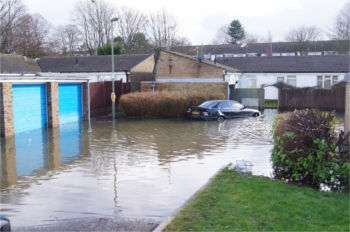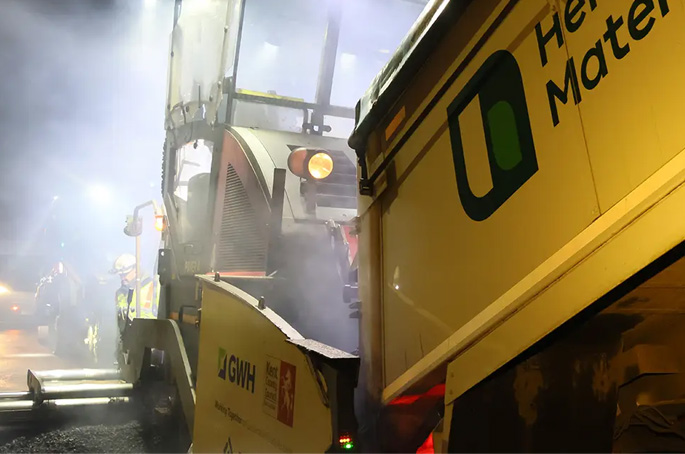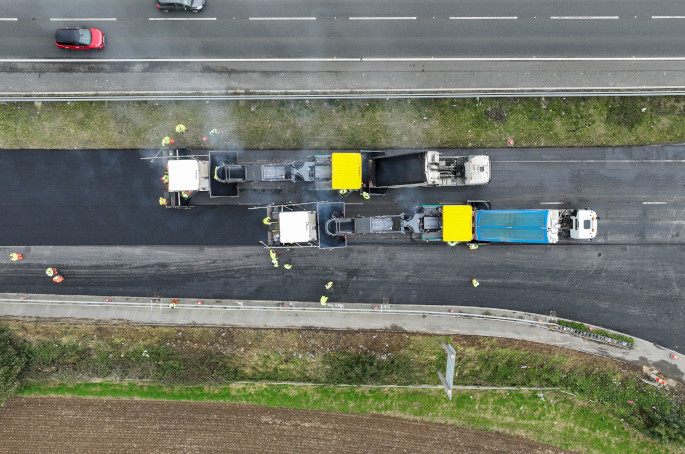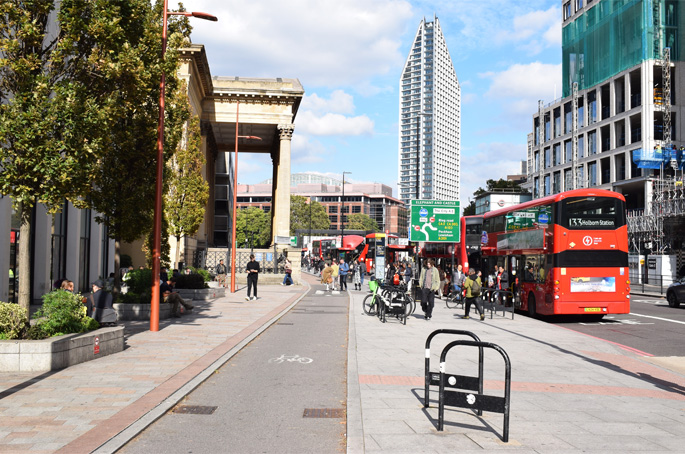Deputy chair of the Association of Directors of Environment, Economy, Planning and Transport's (ADEPT) Flood and Water Management Group and principal drainage engineer and flood risk team leader at Central Bedfordshire Council Alys Bishop talks about how her authority is tackling flooding and drainage.
Climate projections indicate a greater chance of warmer, wetter winters and hotter, drier summers with more extreme rainfall events. These will have a devastating effect upon roads and transport across the country unless we start integrating flood resilience features into both new and existing infrastructure.
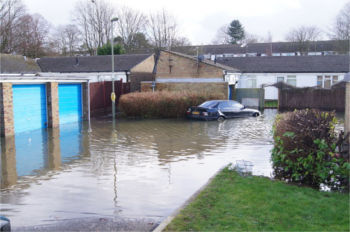
Flooding on highways costs the UK economy a huge amount each year - local authorities estimate the costs of the 2015-2016 winter floods exceeded more than £250m.
Implementing sustainable drainage systems (SuDS) is an integral part of mitigating surface water flooding. SuDS offer water management features that drain surface water in a sustainable fashion. If well designed, SuDS can provide multiple benefits above and beyond mitigating flood risk, including space for wildlife to flourish, better water quality and control over water flow and volume.
On roads, SuDS can attenuate water flow and increase infiltration into the ground, reducing pressure on the highway sewer network and reducing flood risk.
A key benefit of using SuDS on a highway is that they can be designed to remove pollutants in road runoff caused by vehicles.
The 2007 Pitt Review ecommended the uptake of SuDS in new developments and redevelopment projects.
Three years' after the Pitt Review, the Flood and Water Management Act 2010 was introduced, giving county and unitary councils a new lead role as ‘Lead Local Flood Authorities'.
However, as the use of SuDS is not required by law in England (as it can be in Wales) local authorities face an ongoing challenge in promoting their usage.
There is an assumption that SuDS will be more expensive to build, with higher ongoing maintenance costs. However, there is evidence that SuDS can perform better than pipe systems and provide wider benefits for sustainability if they are appropriately designed.
One example of a local authority adopting an innovative approach towards SuDS is Central Bedfordshire Council, which is working closely with Metis Consultants.
A commuted sums tool was created to encourage and support the uptake of SuDS in Central Bedfordshire. The new initiative calculates the commuted sum, which is a payment made by a developer to a local authority to cover future maintenance on a road.
The tool compares different drainage scheme options and gives an accurate, consistent and transparent calculation of whole-life costs of a drainage scheme. This approach allows developers to identify the most cost effective SuDS, gives design guidance to promote high quality, well designed schemes and encourages early engagement with developers.
The main advantage is that developers gain greater certainty of costs much earlier in the design process, which can inform their decision-making. Developers can be more confident that the commuted sum is fair, as the process is more transparent.
Central Bedfordshire Council has seen positive impacts so far. The local authority is currently testing the tool to ensure it promotes the use of well-designed SuDS – it is hoped that it can be fully aligned with Government policy in the future, to ensure both the benefits and the costs of implementing SuDS are factored in.
Working together is at the core of making transport infrastructure more resilient and it is vital that a holistic approach is taken at the pre-planning application stage.
As SuDS can have multiple benefits, they can also perform more than one role. For example, if developers are including trees in their schemes then there could be a commuted sum payable for maintenance of the trees.
Instead of paying for maintenance of the trees in addition to the maintenance of a traditional drainage system, it may be more cost effective to specify tree pits, which provide drainage and trees with one maintenance fee.
It is clear that creating SuDS should be seen as an opportunity, not a constraint. While authorities are making good progress in overcoming some of the barriers to adoption and maintenance at the local level, ADEPT is keen that government implements policy and guidance on SuDS.
The issue is not just about managing SuDS; it is also about making sure that legislation keeps up with ambition – to define in greater detail the requirements to build better resilience into our infrastructure and highways.

